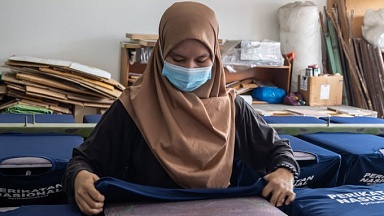The fundamental document regulating trade and economic cooperation between Belarus and Uzbekistan is the cooperation roadmap adopted in November 2018, which includes 158 measures to develop cooperation in key sectors of the economy.
Uzbekistan is Belarus’s second largest trade partner in Central Asia after Kazakhstan. Over the past three years, trade between the countries has almost doubled, reaching a record level of $500 million in 2022.
According to the Statistics Agency, in the first ten months of 2023, imports from Belarus increased by 22% compared to the same period in 2022, reaching $398.6 million. At the same time, Uzbekistan’s exports to Belarus grew slightly slower, by 16%, for a total of $109.4 million.
Physical export and import flows have also been experiencing variable dynamics, but with an upward trend. Uzbekistan had a trade deficit with Belarus throughout the whole period until 2022, with imports significantly exceeding exports to that country. In 2022, imports from Belarus quadrupled relative to 2021 and reached 206 thousand tons.
Because neither Uzbekistan, nor Belarus has direct access to seaports, rail and motor options are the most common modes of transport for freight shipments. Rail transport in Uzbekistan is gaining momentum, but insufficient digital penetration and transparency make it difficult to build an efficient railway infrastructure in the country. So far, road transport accounts for a significant share of freight shipments at 55%, compared to 35% by rail.
Today, facing external restrictions, Belarus is interested in importing certain categories of products from Uzbekistan (cotton yarn and knitwear, food products, fruit and vegetable products); it is a source of stable high demand for these categories of goods. Uzbekistan, in turn, is increasing import of timber products, processed fuel, motor vehicles and meat and dairy products from Belarus.
Better transport connectivity will create conditions for the continued growth of trade between the two countries. The development of alternative transport corridors and new logistics chains is an integral part of trade and economic relations.




